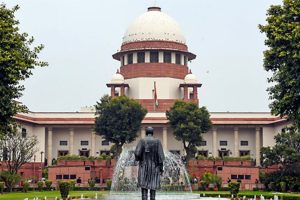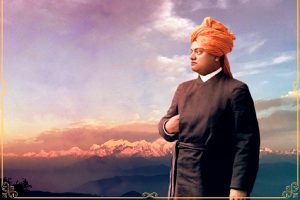The gruesome murder of journalist Mukesh Chandraakar, whose body was discovered in a septic tank in Bijapur, has triggered widespread outrage across Chhattisgarh, igniting protests and intense political debates.
The chilling crime, tied to Chandraakar’s investigative reporting on corruption, has raised urgent concerns about press freedom and the safety of journalists in the state.
Advertisement
Chandraakar, a fearless journalist known for his dedication to uncovering the truth, went missing on January 1. After an extensive search by police and local reporters, his body was discovered on January 3 in a septic tank concealed beneath freshly laid concrete.
Investigators believe the murder was motivated by his reporting on Rs 120 crore road project, allegedly plagued by corruption and linked to his relative, Suresh Chandraakar, who is the prime suspect.
The postmortem report revealed that Mukesh was first strangled and then struck on the head with an axe, leaving a 2.5-inch deep wound. His body, submerged in water for two days, had swollen significantly.
Preliminary findings indicate that Mukesh’s exposé of financial irregularities in the road construction project enraged Suresh Chandraakar and others implicated. The contract had reportedly been awarded to Suresh, further intensifying suspicions.
Police have arrested three suspects—Dinesh Chandraakar, Ritesh Chandraakar, and Mahesh Ramteke — in connection with the case. However, Suresh Chandraakar remains at large. His three bank accounts have been frozen, and his properties demolished.
IG Sundarraj P stated during a press briefing that the arrested suspects have confessed to their involvement, though further details were withheld. Special teams have been deployed to apprehend Suresh.
The murder has sparked widespread protests from journalists, civil society groups, and political parties. Journalists blocked National Highway-63 in Bijapur for four hours and held demonstrations in Raipur, Bilaspur, and Sarguja.
Protesters have demanded the implementation of a journalist protection law and the death penalty for the culprits. Press organizations, including the Indian Press Club and Women’s Press Club, have urged swift and strict punishment for those responsible.
In response, the government has formed a Special Investigation Team (SIT), led by IPS officer Mayank Gurjar and comprising 11 members, to ensure a thorough probe.
The case has also fueled political tensions. Deputy Chief Minister Arun Sao accused Congress leaders of shielding the accused, citing Suresh Chandraakar’s alleged political ties. He claimed Suresh had been appointed as a district office-bearer by the Congress.
Former Chief Minister and Congress MLA Bhupesh Baghel countered Sao’s allegations, asserting that the Public Works Department under Sao’s leadership was riddled with corruption. Baghel alleged that Mukesh’s investigative reports exposed irregularities in a road project managed by the department.
Congress state president Deepak Baij criticized the BJP-led government for failing to maintain law and order, describing the situation as “unbearable.” Meanwhile, the BJP intensified its attack by sharing images on social media, alleging close ties between Suresh Chandraakar and Congress leaders.
The incident has drawn nationwide attention, with Congress leader Priyanka Gandhi condemning the killing and calling for strict action. Chhattisgarh Chief Minister Vishnu Deo Sai expressed deep sorrow over the tragedy, calling it “heart-wrenching and unacceptable.”
On social media, he assured the public that the culprits would face the harshest punishment, stating, “No criminal will be spared.”
As Chhattisgarh mourns the loss of a fearless journalist, the case has amplified demands for stronger protections for the press and stricter accountability for those who threaten or harm them.
The nation’s eyes remain fixed on the state, awaiting justice for Mukesh and a reaffirmation of the commitment to press freedom.











